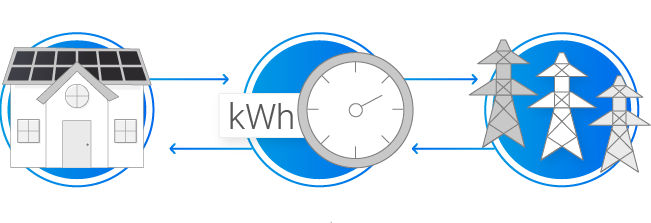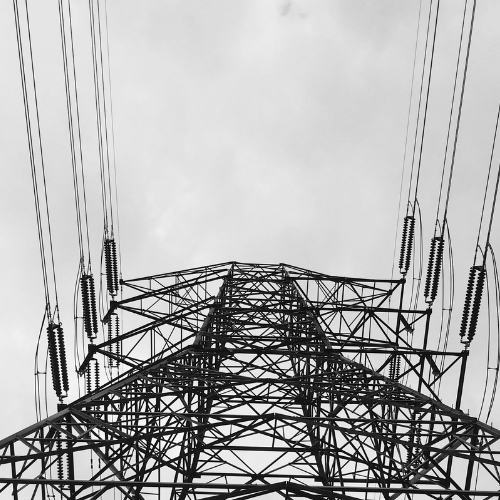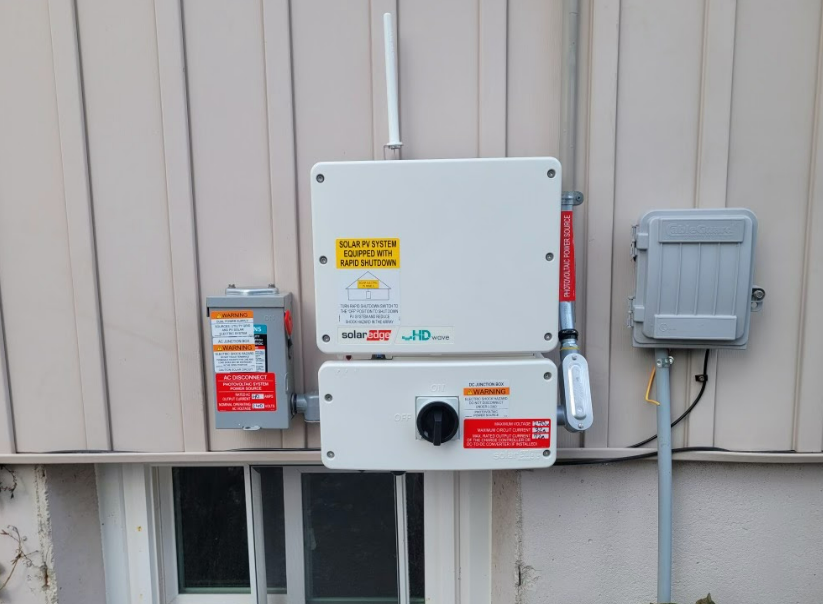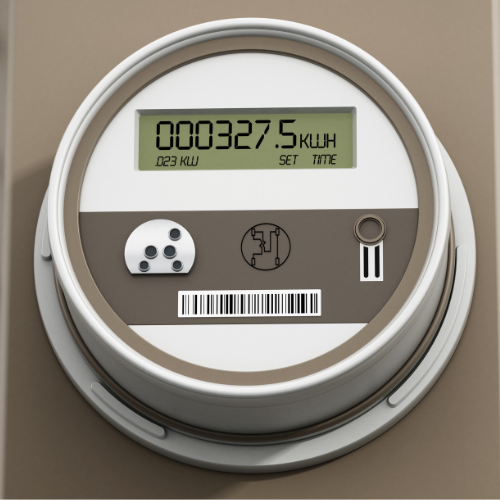Net metering is a billing arrangement that allows homeowners and businesses with solar panels or other renewable energy systems to receive credit for any excess electricity they generate and feed back into the grid.
Save money
Help the planet
Quality control
What Is Net Metering?
Under net metering, when a solar panel system generates more electricity than is being used on-site, the excess electricity is sent back to the grid and the homeowner or business is credited for that excess electricity at the retail rate. When the solar panel system is not producing enough electricity to meet the demand of the home or business, electricity is drawn from the grid as usual, and the homeowner or business is billed for the net electricity consumed.
The idea behind net metering is to incentivize the adoption of renewable energy systems by making it financially attractive for homeowners and businesses to install solar panels or other renewable energy sources. This arrangement helps to reduce reliance on traditional energy sources and promote the development of a more sustainable energy system.
Net metering policies vary from state to state and country to country, so it’s important to check with your local utility provider or government to understand the specific regulations and requirements in your area.
How Does Net Metering work?
Here is a simple breakdown of how net metering works.
- Grid connection: Your solar energy system remains linked to the grid thanks to net metering. Your utility will be able to supply you with power when you need it. Many solar customers use the grid to offset their power production at night.
- Measure energy usage: A bidirectional meter is used in solar energy systems to track how much energy is produced and used. This meter flows both ways, as implied by its name. If you generate more energy than you need, your meter will go backward and send the extra energy to the grid.
- Earn credit: For your excess energy, your utility will give you credit.

Let’s say you have a solar panel installation and live in a region with a net metering program. Your electric meter is set to go backwards when your photovoltaic system generates more electricity than you are using at any given time of the day. When your energy consumption exceeds the output of your solar panels, whether it’s at night or on overcast days, you’ll draw power from the grid and advance your meter. You will be charged the difference between what you provide to the grid and what you pull from the grid at the end of the month or year, which is known as “net metering”.
You can generate enough electricity with a solar energy system of the right size to cover your home’s annual electrical needs. The quantity of electricity your solar panels generate will fluctuate throughout the year, though, with summer months having more sunshine and winter months having less because the sun is lower in the sky and sets earlier. By giving you credit for the extra electricity your solar panels generate so you may utilize it later, net metering enables you to take into account these seasonal variations in solar production.



Why Was Net Metering Created?
Net metering rules were created with two main goals in mind: first, to promote wider usage of renewable energy across the nation; and second, because utilities, and the electricity grid as a whole, can gain from the influx of free or extremely inexpensive solar energy onto the grid. In particular, during the summer months when electricity is frequently most expensive on the hottest-and sunniest!-days of the year, solar energy can assist balance the cost of acquiring electricity from other supplies.
Net Metering Saves You Money
An average of 20 to 40% of the energy produced by solar systems is fed back into the grid, giving customers a financial benefit. In the event that you produce more energy than you use, you will be given more credit at a wholesale cost. Solar energy and net metering can lower your lifetime electricity costs.
Do Net Metering Credits Expire?
Although it may vary depending on where you live, in the majority of states, your net metering credits will carry over from month to month and occasionally year to year, so you won’t have to use them all in one billing cycle. You can therefore accumulate credits to utilize in the winter billing cycles when your generation is lower because your solar energy system produces large amounts of energy in the summer.
Benefits of Net Metering
You may take use of the advantages of your solar panels through net metering. While your solar panels absorb the sun’s rays, your meter tracks your energy consumption and converts any extra energy into money you’ll save.
- Conserve energy. You’ll need less energy from nonrenewable sources if you have solar panels. Your solar panels will give you clean energy and increase your level of energy independence.
- Lower your electric bill. Over the course of your solar system’s life, net metering can help you save thousands of dollars on energy costs. To discover what your potential electric bill would look like with solar, use our solar savings calculator.
- Fuel your neighborhood. With net metering, you can feed any extra energy into the grid, which will then use it to power nearby residences or structures. Your solar panels might be able to supply your neighbors with electricity!
What About Going Off-Grid?
What does it mean to “live off-grid”? Living off the grid means not utilizing the electrical grid for all of your needs. Obviously, installing a solar power system that harnesses and produces energy from the sun is one of the ways you can achieve this. In order to have power when the sun is not shining if you do this, you need batteries to store that energy.
Consider a few more factors if you’re thinking about living off the grid, such as:
- A large portion of the cost increase for an off-grid solar system is attributable to the required storage battery.
- For an off-grid system to provide power at night or on overcast days, extra panels and a battery will probably be necessary.
- Off-grid systems can also have to abide by regional laws, which raises the cost.
- You might have to change your lifestyle, such as lowering the thermostat in the winter and raising it in the summer, to reduce your energy consumption.
- When your system can’t produce enough electricity on its own due to persistent cloud cover (yes, even with batteries! ), off-grid systems can become a problem.
- Instead of returning surplus energy to the utility provider for usage, it may be wasted.

